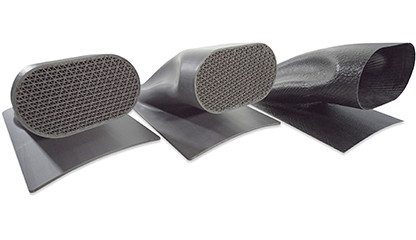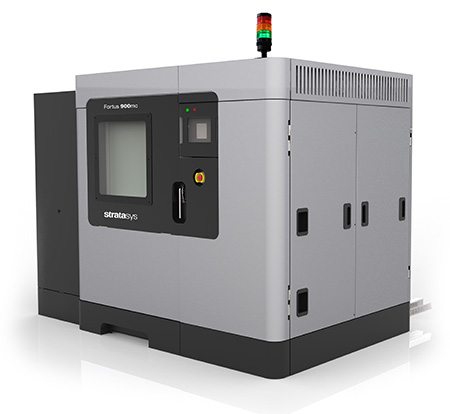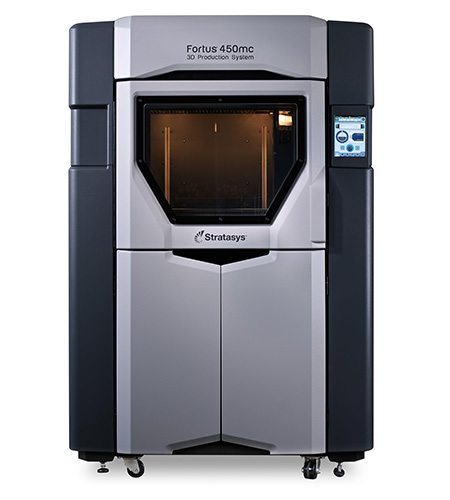
3D Printing With Sacrificial Tooling Material
ST-130 simplifies the production of hollow composite parts as complex tools can be 3D printed and easily dissolved after curing, eliminating the need for secondary processes like mold making.
Overview
3D printing with ST-130 produces prototypes that are able to withstand the heat and pressure of autoclave curing with material that is engineered and tested specifically for sacrificial tooling. Use ST-130 to accelerate the development and production of composite structures as it prints with a permeable triangle fill pattern designed to optimize build speed, conserve material, and dissolve quickly.
**media**
Performance Scale
Strength
Flex
Aesthetics
Speed
Material Colours
?
Material Highlights
Technical Specifications
| Mechanical Properties | Test Method | English | Metric |
| Compressive Strength, Peak Load, On Edge | ASTM D695 | 1,633 lbf | 7.3 kN |
| Compressive Strength, Peak Load, Upright | ASTM D695 | 3,103 lbf | 13.8 kN |
| Compressive Strength, Peak Stress, On Edge | ASTM D695 | 2,106 lbf/in² | 14.5 MPa |
| Compressive Strength, Peak Stress, Upright | ASTM D695 | 4,031 lbf/in² | 27.8 MPa |
| Thermal Properties | Test Method | English | Metric |
| Heat Deflection (HDT) @ 66 psi, 0.125″ unannealed | ASTM D648 | 250°F | 121°C |
| Heat Deflection (HDT) @ 264 psi, 0.125″ unannealed | ASTM D648 | 226°F | 108°C |
| Glass Transition Temperature (Tg) | SSYS DSC | 270°F | 132°C |
| Coefficient of Thermal Expansion (Up to 100°C, xyflow) | ASTM E831 | 59 μin/(in-°F) | 107 μm/(m·°C) |
| Coefficient of Thermal Expansion (Up to 100°C, xzflow) | ASTM E831 | 49 μin/(in-°F) | 88 μm/(m·°C) |
| Coefficient of Thermal Expansion (100-130°C, xyflow) | ASTM E831 | 98 μin/(in-°F) | 177 μm/(m·°C) |
| Coefficient of Thermal Expansion (100-130°C, xzflow) | ASTM E831 | 42 μin/(in-°F) | 76 μm/(m·°C) |
| Suggested Cure Cycle Parameters | Temperature A | Temperature B | Pressure A | Pressure B |
| Temperature | 250°F (121°C) | 210°F (98°C) | 29 in-Hg (101.3 kPa) | 183 in-Hg (620 kPa) |

